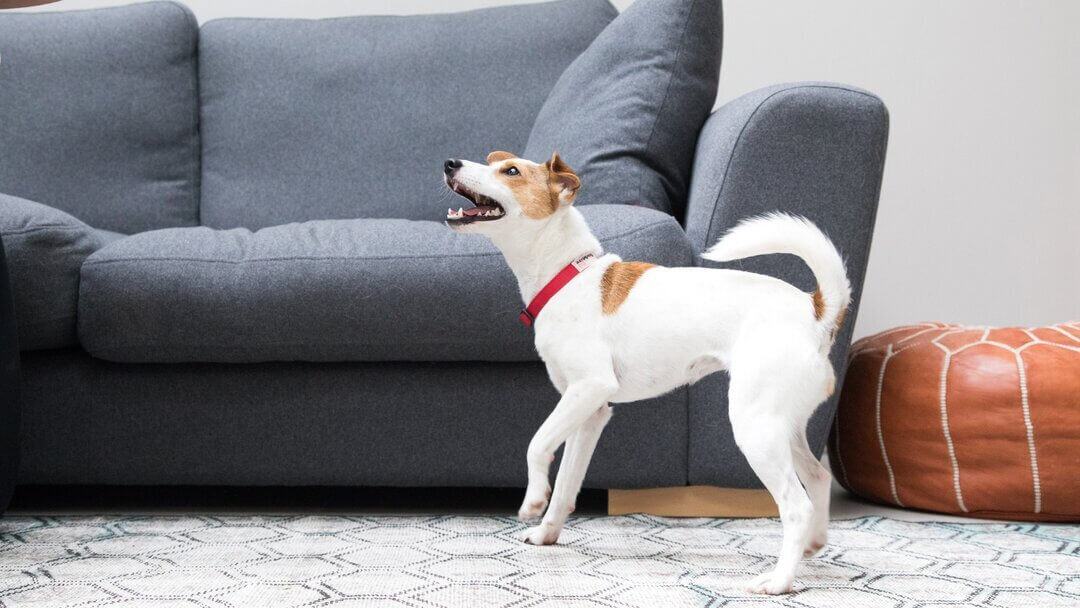You pat the bed welcoming your pooch to snuggle under the covers, but they retreat to the floor reluctantly. As a doting pet parent taking this nightly rejection personally, what gives when your furry best friend seems to prefer solo slumber? Understanding common reasons dogs decline bed sharing helps improve the bond or adjust unrealistic expectations.
Consider whether any scenarios below explain your co-sleeping conundrum:
You Toss and Turn – Restless sleepers disrupt a dog’s much needed uninterrupted rest. To preserve quality sleep themselves, they voluntarily bail out seeking stationary spaces sustaining deeper sleep cycles without physical disruptions.
You Have Sleep Apnea – Loud snoring or breathing interruptions similarly disturb light sleeping dogs. They escape disruptive noises/movements seeking quieter quarters more compatible bedmate abilities.
Uncomfortable Mattress – Chosen comfort ideal human spine support differs what optimizes canine skeletal/muscular systems. Their body mass distributions compress softer foams and sagging mattresses poorly. Firm, supportive pet beds provide orthopedic relief.
Cover Confinement – Some dogs feel restricted nuzzled under blankets directly unable freely repositioning themselves reactively when needing quick body temperature adjustments, scratch access or shifting comfort through the night. Open floor freedom wins.
Guard Duty Distractions – Highly protective companions sense bedrooms too secluded limiting awareness family members coming/going elsewhere needing vigilant oversight from their post. More central location scanning entire households allows responsive surveillance keeping loved ones safest.
Medical Problems – Conditions like arthritis, glandular disorders or anxiety exponentially worsen attempting stillness while owners sleep. Restless pacing, nippy licking rituals or shaking provide sensory relief from chronic ailments flaring monotonously through lonely overnight hours. Symptoms treatment lets them finally relax comfortably.
Early Stage Separation Anxiety – Sudden aloofness could signal distress when left alone initially manifesting avoidance coping mechanisms. Reassure overall togetherness proactively easing escalating angst through confident leadership before problematic destruction/vocalizing starts.
The “New Baby” -Major household changes shake up pack perceptions of security and belonging. Reestablish consistent routines preventing unpredictable volatility introducing changes slowly respecting patience adapts best long term preventing trauma triggers manifesting alarm response behaviors like bed avoidance.
Undesirable Associations – Previous negative experiences link beds unpleasantly with past scolding, veterinary exams or isolation. Building new positive associations systematically counterconditions their opinion feeling safe, relaxed and adored there instead.
Consider your dog’s unique personality and contextevaluate their distance objectively. Then remedy contributing factors compassionately or better provide them accessible preferable sleeping spots respecting space needs. Over time, bonds rebuild stronger through compromises meeting both species sleeping style preferences reasonably.

While sometimes declining co-sleeping reflects healthy independent choice, take note if new aloofness coincides with:
- Aggressive guarding beds from owners suddenly
- Defensive biting or growling if lifted/disturbed
- Elimination accidents suddenly soiling personal spaces
- Reluctant re-entry rooms seeming scared
- Destructive behaviors left unsupervised
- Excessive vocalizing demands for attention
- Apprehension boarding despite previously enjoying
- Escaping confinement zones like crates
- Pacing/restlessness/lethargy
- Neglecting previous cherished toys/treats
Any combination above would warrant veterinary health exams searching for illness or musculoskeletal discomforts making beds unpleasant plus behavioral assessments ensuring no distress or depression simmering under the surface. Rule those out before assuming simply changed preferences. Troubling mood shifts deserve discussions sooner than later.
Encouraging Dog Bed Sharing
If health checks prove unremarkable yet no desire door dark bedrooms persists, proactively recondition their perceptions establishing security.
Make It Comfortable
Ensure ample space refusing no one relaxes squished plus stable temperature controls suiting canine needs. Upgrade plush orthopedic cushioning supporting joint/muscle health minimizing restless maneuvering conflicts.
Set A Routine
Dogs relish routines. Stick consistent pre-bedtime potty walks, tooth brushing and light snack rituals signaling slumber coming next. Praise calmness settling in designated floor/furniture beds nearby bedroom vicinity first if reluctant committing directly yet. Baby steps bridge bonds in time.
Limit Daytime Access
Don’t allow casual bedroom napping or toy storage there. Reserve sleeping spaces exclusively nighttime preserving novelty when initially reshaping sleeping habits minimizing confusion what zones belong where purposes specifically.
Address Medications
Discuss supplements like melatonin or prescription anti-anxiety medications temporarily reducing any pain, neuropathy or stress sabotaging restful abilities sleeping with you. Once peaceful associations strengthen confidence builds weaning meds eventually.
Correct Unwanted Behaviors
Some extra training reinforcing “off” and “settle” commands reminds reluctant pups expectations if choosing beds themselves. Handle/lift desensitizing also reduces defensiveness long term.
Overall patience, medical rule outs and positive reinforcements encourage willing companionship long term without threats forcing traumatic flood scenarios too soon overwhelming their emotional limits. Healthy bonds bloom best moving thoughtful slow with realistic expectations and responsive support guiding dogs embracing intimacy again once feeling steady inner security cemented.

When To Seek Professional Help
If despite all efforts avoiding beds intensifies alongside destructive separation behaviors or bites when approached, seek professional behavioral interventions immediately stabilizing risks before surrender considerations arise through pubic safety liabilities created reaching critical levels destroying dogs, homes and relationships quickly.
Usual outpatient training programs prove insufficient treating extreme distress cases. Collaborating certified specialists objectively assess medication/training options produces lasting results treating root insecuritieshumanely without euthanasia assumed only inevitability scenario quicker containing chaos temporarily which further fuels cyclical damage. Invest now outlining dogs and family’s best chance overcoming obstacles positioned presently feeling insurmountable otherwise left unaddressed escalating exponentially. Where there exists willingness trying, hope remains.
Preventing Bed Avoidance Altogether
Proactively build rock solid bonds early preventing bed reluctance arising through:
Attend Obedience Training – Enroll puppy kindergarten classes reinforcing human leadership, manners and impulse control fundamentals. Use positive reinforcement building attentiveness listening upon request.
Socialize Broadly – Introduce wide ranges ages, sizes and types people/environments preventing perceived scariness isolating nervously. Create lasting confidence welcoming adventures together.
Preset Soothing Associations – Play calmative music, rub lavender oils and reward calm interactions staged purposely within bedrooms preventing fearful introductions happening initially alone terrifying or through previous discipline souring rooms.
Reinforce Secure Emotional Resilience – Challenge tolerances progressively mastering stress coping skills physically and mentally preparing unpredictable events life brings years ahead. Build trust proactively.
Diligent parenting cultivating emotional intelligence and healthy independence gifts dogs lifelong confidence and companionship tenacity weathering any storms down roads together – thunderous or tranquil sampled.SwiftUIent leadership secured means healthy hearts needn’t hesitate sleeping side by side no matter where which bed that may be.

The Bottom Line
Consider canine perspective before taking bed refusals personally. Likely no intended snubs against owners they adore, rather instinctive choices seeking sites securing safety and sleep their species requires thriving daily. Explore creative compromises working wonderfully allowing peaceful proximity even if not pressed closely snuggled under covers directly nightly. Address physical and emotional health factors above all first facilitating ability settling in first place. Then compassionate patience and consistency reshape relaxing new routines resetting reluctant minds welcoming wonderful slept-through nights nestled nearby supporting rest needs cherished dogs deeply deserve.
Frequently Asked Questions
Q: How can I get my rescue dog comfortable sleeping on my bed over time?
A: Introduce gradually first having them nap minutes while you pet positively next to them keeping interactions relaxed using favorite treats over multiple weeks. Building confidence and classically conditioning cozy associations reignites security depleted from unknown pasts.
Q: My partner’s dog suddenly avoids sleeping with us but seems fine healthwise. What can cause this?
A: Sudden environment changes like moving homes, marriage introducing new partners sharing space or babies crying frequently can profoundly impact sensitive dog’s perceptions of safety/belonging. Stick closer reunifying routines and interactions to soothe insecurity.
Q: We are having a baby soon. How do I prepare my velcro dog to still sleep comfortably with us later?
A: simulation tools like phone apps playing infant cries let dogs adjust sound sensitivities gradually. Reserve special petite beds fitting beside yours securing their space/scent. Prevent bed access daytimes ensuring sanctity come nighttime. Reinforce obedience foundations maximizing impulse controls preparing unpredictable moments ahead.
Q: Can older dogs get dementia causing bed avoidance at night suddenly?
Yes, senior dogs declining cognitively manifest increased night time confusion, anxiety and isolation distress avoidance. Secure containment, calmatives and veterinary prescribed medications help them feel safety beds bring supporting rest amid senior transition challenges ahead.
Q: Does crate training childhood predispose dogs tolerating better bed restrictions like blankets after?
Absolutely yes. Positive crate associations young build lifelong adaptable temperaments resigning small spaces stripped stimulation since tolerable norm emphasized through impressionable developmental phases. Confident crate trained pups morph better bed dogs sleeping soundly.



